The Distinguished Visiting Professors Scheme is a new international collaborative research initiative of the City University of Hong Kong (CityUHK). Our mission is to scale new heights in international research network, research collaboration activities, and expand our academic talent pool.
Outstanding academics, with an established track record of research and innovation excellence, from world-renowned universities or research institutions, are cordially invited to join us via the Colleges/Schools of CityUHK.
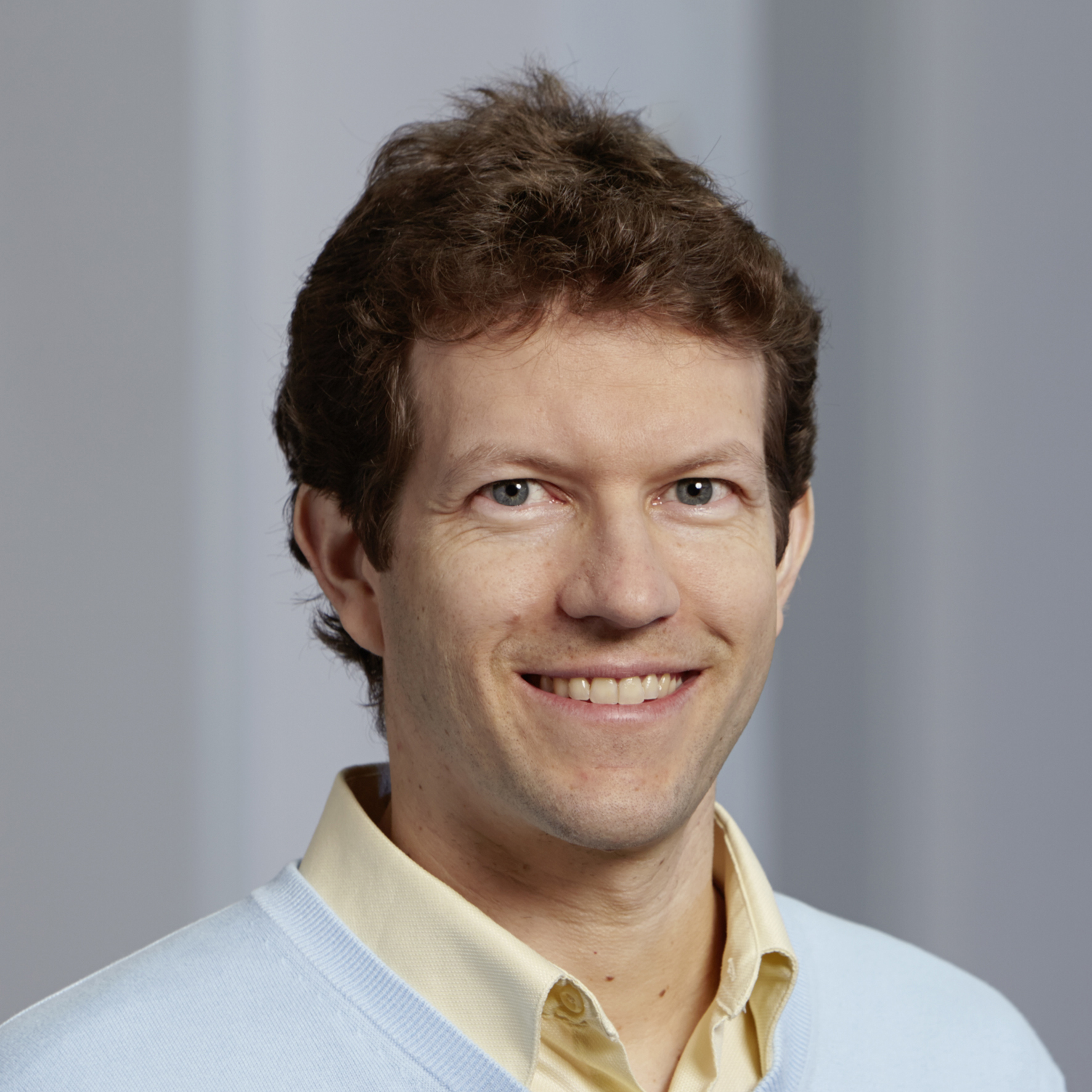
Host Academic Unit
Professor Adrian Perrig is currently a Professor at ETH Zurich, leading the Network Security Group, whose research revolves around building secure and robust network systems, with a particular focus on the design, development, and deployment of the SCION Internet architecture. He is also a Distinguished Fellow at CyLab, and an Adjunct Professor of Electrical and Computer Engineering at Carnegie Mellon University. From 2002 to 2012, he was a Professor of Electrical and Computer Engineering, Engineering and Public Policy, and Computer Science (courtesy) at Carnegie Mellon University. From 2007 to 2012, he served as the technical director for Carnegie Mellon's Cybersecurity Laboratory (CyLab). He earned his MS and PhD degrees in Computer Science from Carnegie Mellon University, and spent three years during his PhD at the University of California at Berkeley. He is a recipient of the ACM SIGSAC Outstanding Innovation Award. Professor Perrig is an ACM and IEEE Fellow.
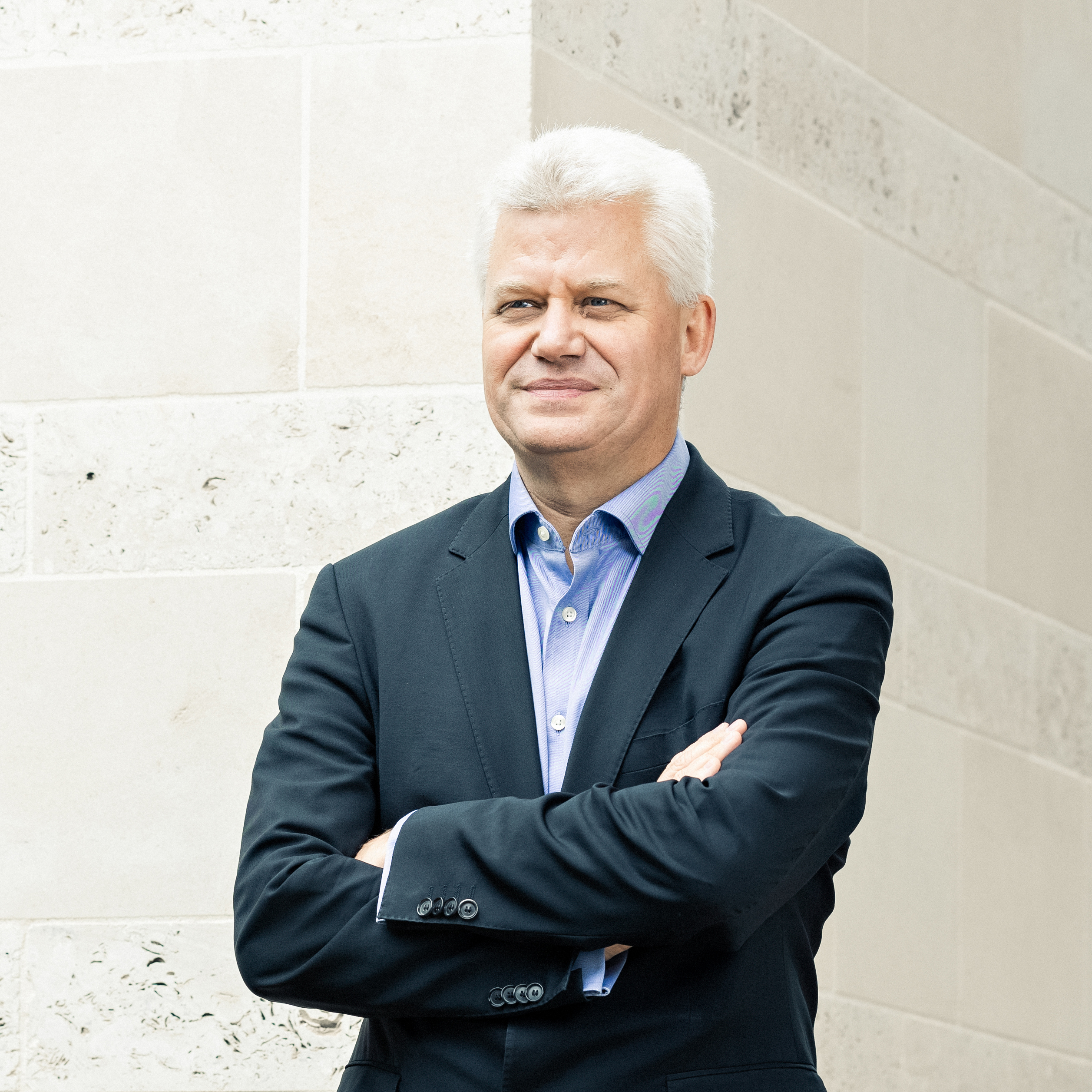
Host Academic Unit
Professor Andy Neely is Professor of Manufacturing at the University of Cambridge and a
Fellow of Sidney Sussex College. His previous appointments include Senior
Pro-Vice-Chancellor: Enterprise and Business Relations at the University of Cambridge, Head
of the Institute for Manufacturing at the University of Cambridge, Royal Academy of
Engineering Professor of Complex Services at the University of Cambridge, Deputy Director of
the Advanced Institute of Management Research, a UK national research programme and the
Director of the Centre for Business Performance at Cranfield University.
As Senior Pro-Vice-Chancellor at the University of Cambridge he had responsibility for all
of the University’s activities relating to innovation, commercialisation, startups and
spinouts. He sat on the boards of Cambridge Enterprise, the University’s technology transfer
business and Cambridge Innovation Capital, a venture capital fund. He played a leading role
in establishing Innovate Cambridge, a city-wide initiative to develop a community-based
innovation strategy for Cambridge.
During his career, Andy has founded several major research centres and groups, including the
Cambridge Service Alliance and the Centre for Digital Built Britain, both at the University
of Cambridge and the Centre for Business Performance at Cranfield University. He is
co-founder of Anmut, the data valuation specialists and a Non-Executive Director at the High
Value Manufacturing Catapult.
He has written over 100 books and articles, including “Measuring Business Performance",
published by the Economist and "The Performance Prism", published by the Financial Times. In
2020 he was awarded an OBE for services to research and university-industry collaboration.
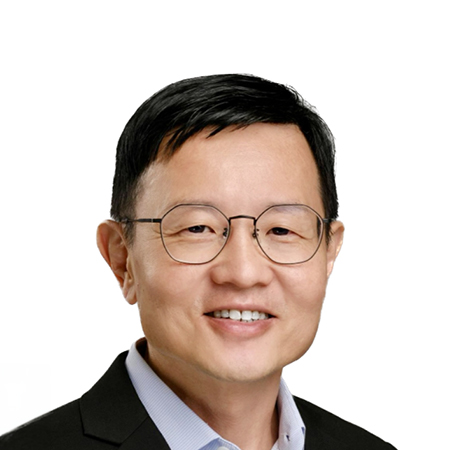
Host Academic Unit
Professor LIM Chwee Teck, the NUS Society Chair Professor and Director of the Institute for Health Innovation and Technology at the National University of Singapore, as well as the Founding Director of the Singapore Health Technologies Consortium, is a renowned researcher and entrepreneur. His research focuses on human disease mechanobiology, microfluidics, and flexible wearable technologies for healthcare. With over 470 co-authored journal publications, including in prestigious journals like Nature and Science, and more than 450 plenary/keynote/invited lectures, Prof. Lim is highly accomplished. He has founded six deep tech startups to commercialize technologies from his lab. As an elected fellow of multiple prestigious organizations and recipient of numerous awards such as the Nature Lifetime Achievement Award for Mentoring in Science and the President's Technology Award, Prof. Lim's work has garnered significant media coverage and recognition globally.

Host Academic Unit
Clare Bryant is Professor of Innate Immunity at the Departments of Medicine and Veterinary Medicine in the University of Cambridge. She studies innate immune cell signalling in response to Pathogen Associated Molecular Pattern Receptor (PRR) activation during bacterial infection using cutting edge multi-disciplinary approaches (collaborating with mathematicians, physicists, physical chemists and structural biologists) to answer fundamental questions about host-pathogen interactions and how to modify them therapeutically. She also applies these innovative approaches to study PRR-induced inflammatory signalling in chronic diseases of humans and animals. In particularly her work using super resolution and single molecule fluorescent imaging approaches to study Toll-like receptor and NOD-like receptor signalling within cells have revealed novel mechanisms in how these receptors signal. She has been on secondments in Genentech and GSK, has extensive collaborations with many pharmaceutical companies, is on the scientific advisory board of several biotech companies, has a drug discovery project with Apollo Therapeutics and helped found the natural product company Polypharmakos. During the COVID-19 pandemic she founded, and still runs, the Inflammazoom international on line seminar series. She was elected as a Fellow of the British Pharmacology Society in 2018, Fellow of the American Academy of Microbiology and Learned Society of Wales in 2023.

Host Academic Unit
Professor Clemens Kaminski is a professor of chemical physics at the University of Cambridge, UK, and is the head of the Department of Chemical Engineering and Biotechnology. He pioneered ultrahigh-speed imaging techniques for the study of chemistry in reactive flows and, more recently, in biological systems. His laboratory is exclusively focused on the development and application of optical microscopy methods to investigate molecular mechanisms of disease. He is the recipient of the Cyril Hinshelwoold Prize, Philip Leverhulme Prize, SAOT Research Prize in Optics, and the Morris Sugden Award. Most recently, Kaminski won the 2023 Rosalind Franklin Medal and Prize for the development of optical methods to interrogate molecular mechanisms in biological systems. He is a Fellow of the Optical Society of America, the Institute of Physics, and the Royal Society of Chemistry. He is also the director of the EPSRC Centre for Doctoral Training in Sensor Technologies for a Sustainable and Healthy Future.

Host Academic Unit
Professor Colm Durkan is the Head of the Department of Engineering at the University of Cambridge (CAM), UK. He is also the founder and head of the Nanoengineering Science Group at the Nanoscience Centre, CAM. Prof. Durkan also contributes to the scientific community as a member of the editorial board of the Nature journal Scientific Reports. He obtained a PhD in Physics from Trinity College and built the first Scanning Near-field Optical Microscopy (SNOM) in the country. Then, he completed his postdoctoral journey at the University of Konstanz in Germany, where he was honored with an Alexander von Humboldt visiting fellowship for his research in atom optics. In 1997, he joined CAM as a postdoctoral researcher and became a full professor in 2000. He is on the editorial board of the Nature journal Scientific Reports. With over 150 papers published in peer-reviewed journals, Prof. Durkan's research interests lie in understanding the fundamental relationship between form (size and shape) and function in Nanomaterials with an emphasis on advanced modes of microscopy and surface analysis techniques to address both highly-applied everyday problems and the underlying science. Additionally, he is involved in the fabrication of novel devices and innovative device architectures. He recently completed a book – “Size really does matter- the nanotechnology revolution” for the layperson. He has also written a textbook on nanoscale quantum electronics – “Current at the Nanoscale”, and a short ebook on electrical circuits – “Electricity without the tears” to help beleaguered schoolchildren.
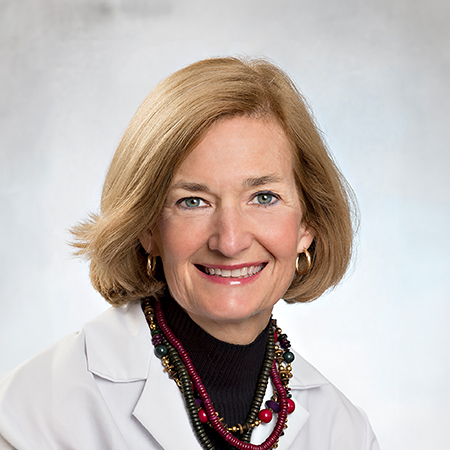
Host Academic Unit
Professor Cynthia Morton is the William Lambert Richardson Professor of Obstetrics, Gynecology and Reproductive Biology and Professor of Pathology at Harvard Medical School, Kenneth J. Ryan, M.D. Distinguished Chair in Obstetrics and Gynecology, Director of Cytogenetics and Past Director of the Biomedical Research Institute at Brigham and Women's Hospital. She is an Institute Member of the Broad Institute of MIT and Harvard. She is the recently elected Vice Chair of the Harvard Medical School Faculty Council. Professor Morton is certified by the American Board of Medical Genetics in PhD Medical Genetics, Clinical Cytogenetics and Clinical Molecular Genetics. Her research interests are in molecular cytogenetics, hereditary deafness, genetics of uterine leiomyomata and human developmental disorders. She has published 335 original articles. Professor Morton was a member of the Board of Directors of the American Society of Human Genetics for 12 years and served as the 2014 President. She completed a six-year tenure as Editor of The American Journal of Human Genetics and is currently Co-Editor of Human Genetics. Professor Morton is a Fellow of the American Association for the Advancement of Science.

Host Academic Unit
Professor Dacheng Tao is currently a Distinguished University Professor in the College of Computing & Data Science at Nanyang Technological University, Singapore. With a rich academic history, he has held prestigious positions such as Australian Laureate Fellow and Peter Nicol Russell Chair at the University of Sydney. He has also been deeply involved in various management roles in both academia and industry, including serving as the Founding Director of the Sydney Artificial Intelligence Centre in University of Sydney, Chief Scientist and Advisor of the Digital Sciences Initiative in the University of Sydney, Chief Scientist of AI in UBTech, Senior Vice President in JD.com, and the Inaugural Director of JD Explore Academy in JD.com. His research focuses on artificial intelligence, spanning areas including deep learning, deep learning theory, computer vision, natural language processing, and statistical machine learning. His extensive body of work comprises over 300 publications in renowned journals and conferences, with numerous accolades including best paper awards from esteemed institutions like IEEE and IJCAI. Recognized as a Highly-Cited Researcher in Engineering and Computer Science, he has received several prestigious awards, including the IEEE Computer Society Edward J. McCluskey Technical Achievement Award and the Australian Museum Eureka Prize for Excellence in Data Science. He has led successful teams in various international challenges related to computer vision and machine learning, showcasing his leadership and innovation in the field. His contributions extend beyond research, as evidenced by his exceptional supervision of research students. His guidance has led to numerous awards for his PhD students, highlighting his commitment to nurturing talent in academia. Prof Tao is also recognized as a Fellow in prestigious organizations such as the Association for Computing Machinery, IEEE, the American Association for the Advancement of Science, and the Australian Academy of Science. His diverse editorial roles and extensive service to major conferences underscore his significant impact on the field of artificial intelligence.
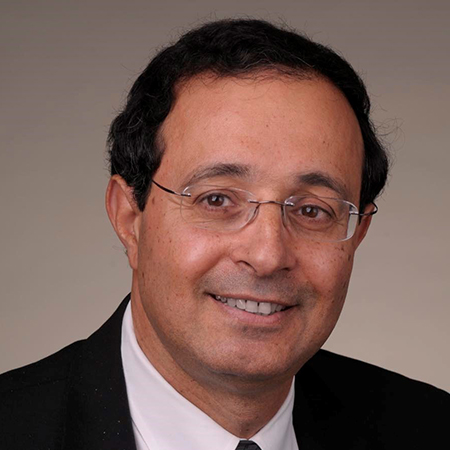
Host Academic Unit
Professor David Simchi-Levi is a Professor of Engineering Systems at MIT and serves as the head of the MIT Data Science Lab. He is considered one of the premier thought leaders in supply chain management and business analytics. He is the current Editor-in-Chief of Management Science, one of the two flagship journals of INFORMS. In 2023, he was elected a member of the National Academy of Engineering. In 2020, he was awarded the prestigious INFORMS Impact Prize for playing a leading role in developing and disseminating a new highly impactful paradigm for the identification and mitigation of risks in global supply chains. He is an INFORMS Fellow and MSOM Distinguished Fellow and the recipient of the 2020 INFORMS Koopman Award given to an outstanding publication in military operations research; Ford Motor Company 2015 Engineering Excellence Award; 2014 INFORMS Daniel H. Wagner Prize for Excellence in Operations Research Practice; 2014 INFORMS Revenue Management and Pricing Section Practice Award; and 2009 INFORMS Revenue Management and Pricing Section Prize.
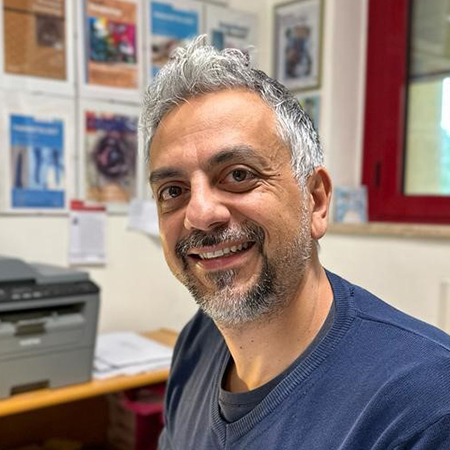
Host Academic Unit
Professor Domenico Otranto is a Professor of Parasitology and Parasitic Diseases of Animals at the Department of Veterinary Medicine (University of Bari, Italy), where he was Head for two terms (2015-2021). He is President of the World Association for the Advancement of Veterinary Parasitology, WAAVP (2019-2027) and former President of the European Veterinary Parasitology College, EVPC (2016-2019). In recognition of his studies in the field of parasitology, he was the recipient of many awards (Young Scientist award from the WAAVP, 2007; international award of the Accademia dei Lincei, 2006; Bayer Research Award from the WAAVP, 2019). His research focuses on the study of the biology, diagnosis and control of arthropods and arthropod borne diseases of zoonotic concern, with both a basic and an applied approach. His activities focus on research and education projects in low- and middle- income Countries with a One Health approach. He is the author of more than 710 peer-reviewed articles in international scientific journals and of numerous book chapters. He is Deputy Editor of PLOS Neglected Tropical Diseases, Advisor Editor and Associate Editor of many scientific journals in the field. He is the organizer of the Parasitology Summer Courses (ParSCo) held under the aegis of the EVPC and of the WAAVP and Chair of the Odile Bain Memorial Prize. Since 2023, he has been a member of the Scientific Steering Committee of One Health Action Commission supported by Bill & Melinda Gates Foundation and a consultant of WHO for the preparation of guidelines on canine leishmaniosis.
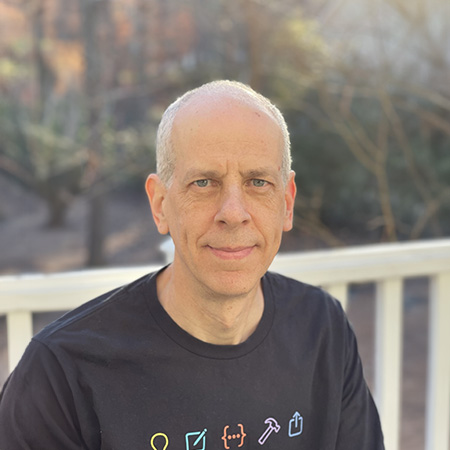
Host Academic Unit
Professor Guillermo Sapiro received his B.Sc. (summa cum laude), M.Sc., and Ph.D. from the Technion, Israel Institute of Technology. After post-doctoral research at MIT, he became a Member of Technical Staff at HP Labs. He was with the Department of Electrical and Computer Engineering at the University of Minnesota. After that he spent 13 years at Duke University. Currently he is the Augustine Family Professor in Electrical and Computer Engineering with Princeton University. He is also a Distinguished Engineer with Apple, Inc., where he leads a team on Health AI. He works on theory and applications in computer vision, computer graphics, medical imaging, image analysis, and machine learning. He has authored over 500 papers in these areas and has written a book published by CUP. Professor Sapiro was awarded the ONR Young Investigator Award in 1998, the Presidential Early Career Awards for Scientist and Engineers (PECASE) in 1998, the NSF Career Award in 1999, and the National Security Science and Engineering Faculty Fellowship in 2010. He received the Test-of-Time award at ICCV 2011 and at ICML 2019. He was elected to the American Academy of Arts and Sciences in 2018 and to the National Academy of Engineering in 2022, and is a Fellow of IEEE and SIAM. He was the founding Editor-in-Chief of the SIAM Journal on Imaging Sciences.
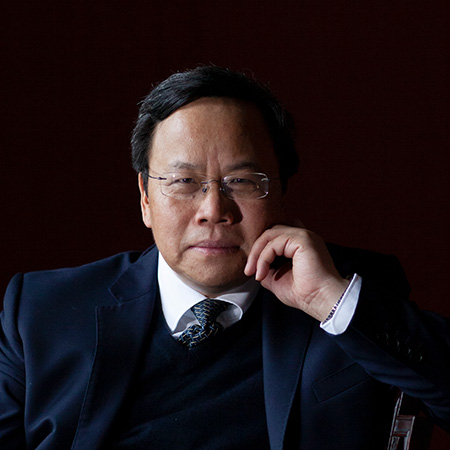
Host Academic Unit
Professor Gui-Qiang G. Chen is currently the Statutory Professor in the Analysis of Partial Differential Equations, Director of the Oxford Centre for Nonlinear PDEs (OxPDE) at the Mathematical Institute, and a Professorial Fellow of Keble College, University of Oxford. With expertise in nonlinear partial differential equations and nonlinear analysis, his research spans various fields, including geometry, mechanics, and mathematics. He has published more than 200 original research papers and more than 10 research books. Professor Chen has received numerous prestigious honors, fellowships and awards, including Member of Academia Europaea (elected, 2022), Fellow of the European Academy of Sciences (elected, 2020), Fellow of the American Mathematical Society (elected, 2017), Fellow of the Institute of Mathematics and its Applications (elected, 2014), Turner-Kirk Fellow of the Isaac Newton Institute for Mathematical Sciences (Cambridge, 2013-14), Fellow of the Society of Industrial and Applied Mathematics (elected, 2012), The 2011 SIAG/Analysis of Partial Differential Equations Prize (SIAM 2011).
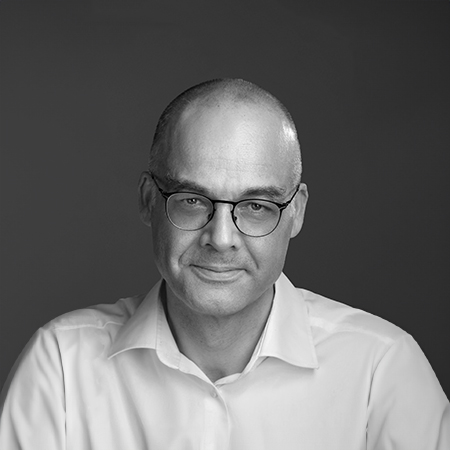
Host Academic Unit
Professor Harm-Anton Klok is a Full Professor at the Institutes of Materials, and Chemical Sciences and Engineering at the Ecole Polytechnique Fédérale de Lausanne (EPFL) in Lausanne, Switzerland. He received his Ph.D. in 1997 from the University of Ulm, Germany, and held postdoctoral positions at the University of Twente and the University of Illinois at Urbana–Champaign before joining the Max Planck Institute for Polymer Research, Germany in 1999. Since 2012 he is Director of the Institute of Materials (~ Department Head) and also directs the Molecular and Hybrid Materials Characterization Center at EPFL. Professor Klok's research interests include polymer surface and interface science, polymer nanomedicine, and polymer synthesis and functionalization. Harm-Anton Klok is recipient of the Arthur K. Doolittle Award of the American Chemical Society (2007), and was honored with a Distinguished Scientist Award by the Chinese Academy of Sciences President’s International Fellowship Initiative (2020). Klok has served as an Associate Editor for Biomacromolecules and ACS Polymers Au, and on the editorial advisory boards of several other prestigious polymer science journals. He has also held visiting professor positions at universities in France, the USA, China, and Singapore.

Host Academic Unit
Prof. van de Ven is an authority on the history of 19th and 20th century China. He holds several positions at the University of Cambridge, where he is Deputy Vice Chancellor, Professor of Modern Chinese History, Fellow and Director in Asian and Middle Eastern Studies at St Catharine's College and previously served as Chair of the Faculty of Asian and Middle Eastern Studies. He studied sinology at Leiden University. Then, after studying with Susan Naquin at the University of Pennsylvania for a period of time, he moved to Harvard University, where he studied modern Chinese history under Philip Kuhn and received his PhD. He specializes in the studies of Chinese Communist Party before 1949, the history of warfare in modern China from the Taiping Rebellion to the Civil War between the Communists and the Nationalists, and the history of Chinese globalization in the 1850-1950 period with a focus on Chinese Maritime Customs. He has published a number of monographs and numerous articles on these topics, of which some are published in Chinese in Mainland China, Taiwan, and Hong Kong.
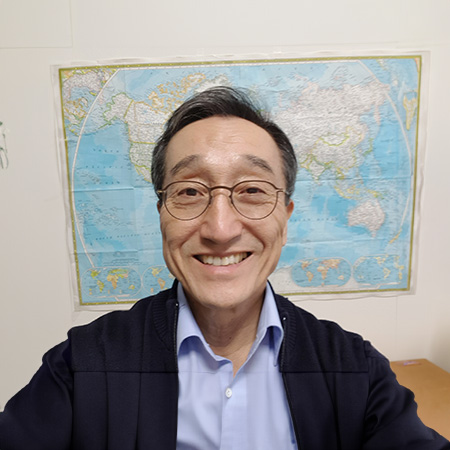
Host Academic Unit
Professor Hee-Sup Shin, with an MD from Seoul National University Medical College (1974) and a Cornell University Medical College PhD in genetics and cell biology (1983), has taught at MIT (USA) and POSTECH (Korea). He was the founding Director of Brain Science Institute, KIST, and then Director of Center for Cognition and Sociality, IBS. After stepping down from the directorship of the Center for Cognition and Sociality, he continues his research as an Honorary Fellow of IBS. He has been using molecular genetics to study neural mechanisms for animal behaviors, primarily focusing on the role of the thalamus in normal and diseased brains. His interest was on the regulation of intracellular Ca2+ levels in brain cells. He utilized gene knock-out tools on genes such as voltage-gated Ca2+ channels and PLC enzymes. Since 2010, his research interest has evolved to neurobiology of social behaviors. He has pioneered to establish a behavioral paradigm, observational fear learning in mice, a rodent model for emotional contagion, basic form of affective empathy. This paradigm allowed, for the first time, to study affective empathy at the molecular and cellular levels. Prof Shin’s contribution to science has been recognized globally by multiple honors that include being elected to be a member of the National Academy of Science, Republic of Korea, an international member of the National Academy of Science, USA, and an AAAS Fellow.

Host Academic Unit
Helen Bao is a Professor of Urban Economics & Public Policy at the Department of Land Economy and a Fellow in Land Economy at the Newnham College, University of Cambridge. After completing her PhD in Statistics at the City University of Hong Kong, Helen joined the University of Cambridge in 2006. Helen's research focuses on government policy and interventions that facilitate market operations and mitigate market failures in urban settings, such as sustainable urbanisation and housing affordability. On the technical front, she specialises in the application of behavioural insights and hedonic price modelling in land and housing markets. Helen's book, "Behavioural Science and Housing Decision Making: A Case Study Approach," pushes the teaching and research frontier of behavioural urban studies. Helen has published extensively on the application of behavioural insights in real estate markets in Urban Studies, Regional Sciences, Land Use Policy, Housing Studies, Journal of Real Estate Finance and Economics, Cities, Transport and Research Part F - Traffic Psychology and Behaviour, among others. Helen's research has received grants from the Economic and Social Research Council (UK) and the National Natural Science Foundation of China. She is an Associate Editor of Cities and an editorial board member of key journals in the area of urban studies, such as Land Use Policy.

Host Academic Unit
Professor Henry Snaith is a physicist working on new materials and devices for photovoltaic solar energy conversion. His multidisciplinary work spans activities from new materials discovery and synthesis, through device optimization to fundamental spectroscopic and theoretical investigations. Henry Snaith discovered that a new type of solar cell material, namely metal halide perovskites, can produce extremely efficient solar cells when processed as a solid thin-film and “sandwiched” between two charge selective electrodes. By combining perovskites with silicon, in so-called “tandem cells” he has demonstrated efficiencies far beyond what is possible with existing commercial PV technologies, and promises to deliver the next generation of improved PV for powering the world towards net zero. Perovskites are based on earth abundant materials which are also very easy and cheap to manufacture. Henry Snaith is intimately involved in the commercialization of this technology, as co-founder and Chief Scientific Offer of Oxford PV ltd. Oxford PV has ramped up production on the first full-scale production line based on his perovskite technology. Henry Snaith was elected as a Fellow of the Royal Society at the age of 37, for “starting a new field of research attracting both academic and industrial following”. He has also won numerous awards and accolades, including the Leigh Ann Conn Prize for Renewable Energy, The Becquerel Prize in Photovoltaics, the Blavatnik Award for Young Scientist, being named one of “Natures Ten” people who mattered in 2013 and topping the rank of the world’s “most influential scientific minds”, as judged by Clarivate Analytical.
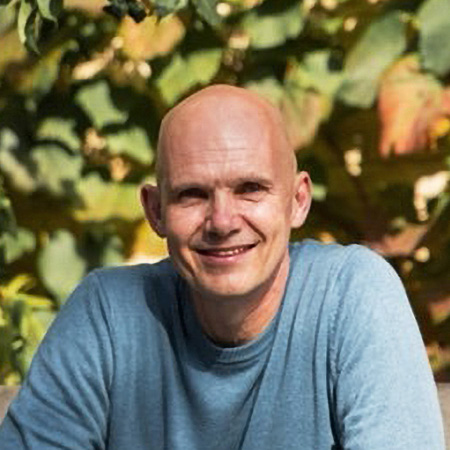
Host Academic Unit
Iain McCulloch is the Gerhard R. Andlinger '52 Professor for Energy and the Environment, and Director of the Andlinger Center for Energy and the Environment, Professor of Electrical and Computer Engineering at Princeton University, and a Professor of Polymer Chemistry in the Department of Chemistry at the University of Oxford since 2020. Prior to this, he held joint appointments as Professor of Chemical Science and Director of KAUST Solar Center at KAUST, as well as a Chair in Polymer Materials in the Chemistry Department at Imperial College. Previously, he spent 18 years managing industrial research groups at Hoechst in the US and Merck in the UK. He is a Fellow of the Royal Society, the Royal Society of Chemistry, the European Academy of Sciences and a Member of Academia Europaea. He is the recipient of the 2022 Royal Society Armourers and Brasiers Prize, the 2020 Blaise Pascal Medal for Materials Science, the Royal Society of Chemistry 2020 Interdisciplinary Prize, 2014 Tilden Medal for Advances in Chemistry and the 2009 Creativity in Industry Prize. His interests are in the design and investigation of organic semiconducting materials.
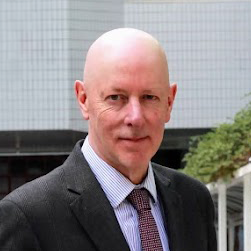
Host Academic Unit
Professor Ian W. McKeague has a B.A., M.A. and M.Math from the University of Cambridge, and a Ph.D. in statistics from the University of North Carolina at Chapel Hill in 1980. He was on the faculty of the Department of Statistics of the Florida State University, 1980-2004. He was on sabbatical leave at the Mathematical Sciences Research Institute of the University of California at Berkeley, and then at the Laboratoire de Modalisation et Calcul of the University Joseph Fourier, Grenoble, France, 1991-1992. He served as Chair of the FSU Statistics department, 1996-99, and was named the Ralph A. Bradley Professor of Statistics at FSU in 2000. He has been a Professor of Biostatistics at Columbia University since 2004. During 2021-2022 he joined City University of Hong Kong as (founding) Head and Chair Professor of the Department of Biostatistics. His research interests include post-selection inference, empirical likelihood, order-restricted inference, non-standard asymptotics, statistical methods in physical oceanography, functional data analysis, inference for stochastic processes, survival analysis, competing risks models for HIV/AIDS data, Markov chain Monte Carlo and Bayesian methods, efficient estimation for semiparametric models, missing data, counting processes and spatial point processes. He has served as an associate editor of the Annals of Statistics for seven years, the Journal of the American Statistical Association for 11 years, and is currently serving on the editorial boards of Statistical Science, Statistical Inference for Stochastic Processes, and the International Journal of Biostatistics. During 2020-2023 he served as Co-Editor of the Journal of the American Statistical Association. He is a fellow of the Institute of Mathematical Statistics and a fellow of the American Statistical Association. He will receive an Institute of Mathematical Statistics Medallion Award and give the Medallion Lecture at the IMS Annual Meeting in 2026.
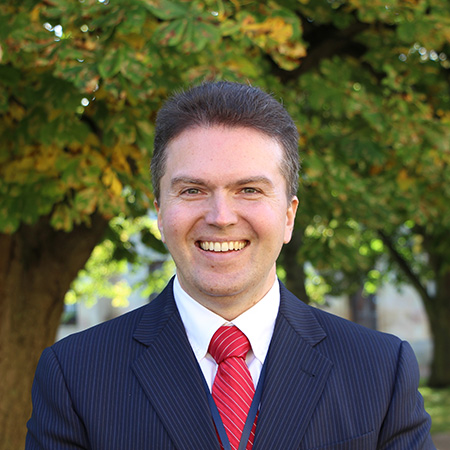
Host Academic Unit
Professor Ioannis Brilakis is a Laing O’Rourke Professor of Civil & Information Engineering and the Director of the Construction Information Technology Laboratory at the Division of Civil Engineering of the Department of Engineering at the University of Cambridge. He completed his PhD in Civil Engineering at the University of Illinois, Urbana Champaign in 2005. He has held visiting posts at the Department of Computer Science, Stanford University as a Visiting Associate Professor of Computer Vision (2014) and at the Technical University of Munich as a Visiting Professor, Leverhulme International Fellow (2018-2019), and Hans Fischer Senior Fellow (2019-2021). He is a recipient of the NSF CAREER award, the 2019 ASCE J. James R. Croes Medal, the 2018 ASCE John O. Bickel Award, the 2013 ASCE Collingwood Prize, the 2012 Georgia Tech Outreach Award and the 2009 ASCE Associate Editor Award. Professor Brilakis is an author of over 200 papers in peer-reviewed journals and conference proceedings, an Associate Editor of the ASCE Computing in Civil Engineering, ASCE Construction Engineering and Management, Elsevier Automation in Construction, and Elsevier Advanced Engineering Informatics Journals, and the lead founder of the European Council on Computing in Construction.

Host Academic Unit
James Durrant is Professor of Photochemistry in the Department of Chemistry, Imperial College London and Sêr Cymru Solar Professor, Department of Materials Science and Engineering, University of Swansea. His research focuses on the use of transient laser spectroscopy and optoelectronic / spectroelectrochemical techniques to investigate the function of new materials for sustainable energy conversion, including materials for artificial photosynthesis, organic solar cells and photodetectors and metal oxides for electrolysis. More widely, as part of the SPECIFIC IKC, he leads the EPSRC programme grant ATIP, and at Imperial leads its Centre for Processable Electronics (the CPE). He has published over 550 research papers and 5 patents, which have been cited over 70,000 times, leading to an h-index of 146. He was elected a Fellow of the Royal Society in 2017 and appointed a Commander of the British Empire (CBE) for services to photochemistry and solar energy research in 2022.
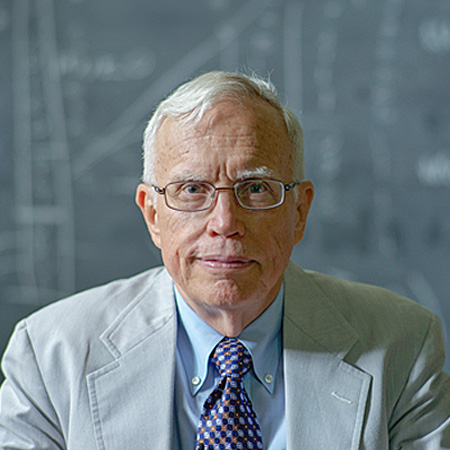
Host Academic Unit
Professor James J. Heckman is the Henry Schultz Distinguished Service Professor of Economics and Public Policy at the University of Chicago. He works to understand the origins of inequality, and skill formation, and develops and applies strategies for addressing these issues. Heckman has published over 350 articles and 9 books. Heckman received the Nobel Prize in Economics, the Dan David Prize, and the Chinese Government Friendship Award, among other recognitions. He is Director of the Center for the Economics of Human Development at the University of Chicago. The center investigates the sources of poverty and social immobility and policies to improve human flourishing.

Host Academic Unit
Jason Robinson FIMMM has a Professorial Chair in Materials Physics at the University of Cambridge where he is a joint Head of the Department of Materials Science & Metallurgy, Director of the Quantum Materials & Devices Group, and co-director of the Centre for Materials Physics. His experimental research focuses on the development of multifunctional materials and devices, approaching key problems in the fields of spintronics, superconductivity, and quantum technologies. He has made major contributions to these fields, including the discovery of triplet Cooper pairs in hybrid superconductor/magnetic devices and pioneering the field of superconducting spintronics.

Host Academic Unit
Professor Jeff Niederdeppe, an ICA Fellow, is the Senior Associate Dean of Faculty Development at the Jeb E. Brooks School of Public Policy and Liberty Hyde Bailey Professor of Communication at Cornell University. He leads Cornell's Health Communication Research Initiative (HCRI) and co-directs both the Collaborative on Media and Messaging for Health and Social Policy (COMM-HSP) and the Cornell Center for Health Equity (CCHEq). Ranked as a Top 1% Scientist in Public Health by Stanford University, he has published significant numbers of peer-reviewed articles across various disciplines. He is the recipient of many academic awards, including being elected an ICA Fellow in 2022, receiving the Research and Extension Award from Cornell’s CALS in 2019, the Early Career Award from the American Public Health Association in 2016, and the Lewis Donohew Outstanding Scholar in Health Communication Award in 2014. He serves on the editorial boards of seven journals in communication and public health.

Host Academic Unit
John Spengler, Akira Yamaguchi Professor of Environmental Health and Human Habitation, and Co-Director of the JPB Environmental Health Fellowship Program at the Harvard T.H. Chan School of Public Health, has over 40 years’ experience in environmental health and exposure science, characterizing the exposure to and effects of contaminants in outdoor and indoor environments. Through studies of homes, office buildings, schools, and transit systems Spengler’s research has investigated design, materials, maintenance, and behaviors that mitigate exposures to harmful contaminants. During the SARS CoV-2 pandemic, his team examined transmission and mitigation of airborne viruses in schools, airplanes, airports, and buses. Several recent studies have looked at health and the built environment and the wellbeing benefits of exposure to Nature, including using Virtual Reality to explore physiologic and cognitive effects of exposures to nature in indoor and outdoor settings. For the past decade, Spengler’s teaching and research have increasingly focused on issues related to climate change and sustainability. Motivated by the urgency conveyed by the UN Sustainable Development Goals (SDGs), his team has formed collaborations with professional organizations, NGOs, and companies to affect evidence-based decisions more rapidly in other sectors of society.
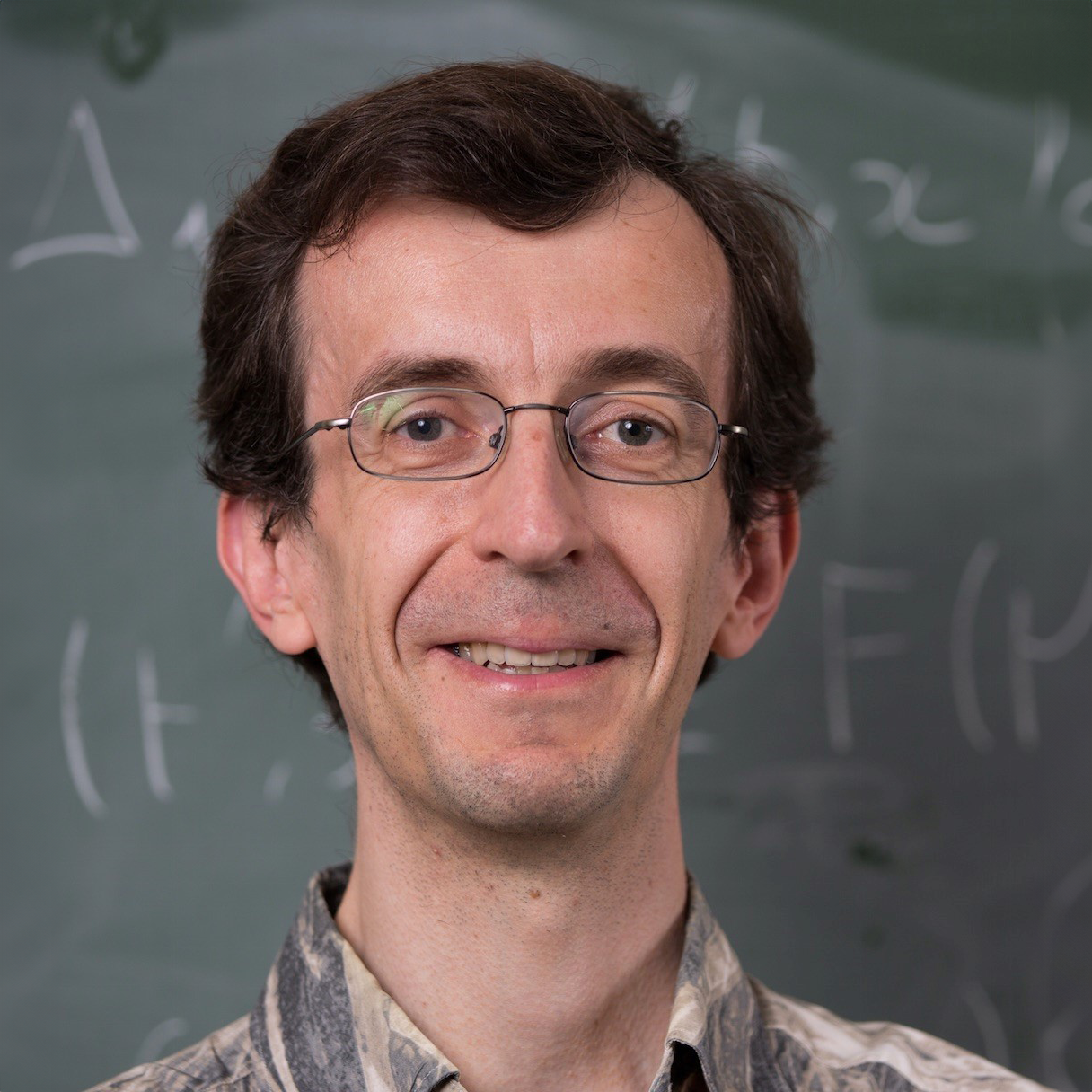
Host Academic Unit
Professor Josselin Garnier has been a professor of Applied Mathematics since 2001, first in Toulouse, then in Paris at Université Paris Diderot and Ecole Normale Supérieure, and finally at Ecole Polytechnique since 2016. He has been the head of the Department of Applied Mathematics at Ecole Polytechnique since 2023. His field of research lies at the interface of probability theory and analysis, and concerns the modeling and study of random phenomena, in particular wave propagation and imaging in complex media, the quantification of uncertainties in numerical simulation, and stochastic algorithms. In particular, he has proposed and studied passive imaging techniques exploiting signals from opportunistic sources or ambient noise, extending these techniques from seismology to other fields, including non-destructive testing and structural health monitoring. He has also worked on the quantification of uncertainties in numerical simulation, to quantify the confidence that can be placed in the predictions and decisions resulting from such simulations. He has authored three hundred papers in these areas and has written five research books and three textbooks. He was the recipient of the Blaise Pascal Prize in 2007 and the Felix Klein Prize in 2008. He was an invited speaker at the International Congress of Mathematicians in 2018. In 2023, he was elected a member of the French Academy of Sciences.
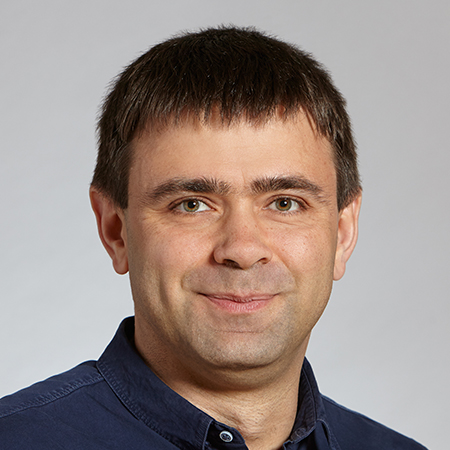
Host Academic Unit
Professor Maksym V. Kovalenko is a full professor of Functional Inorganic Materials at ETH Zürich. He is also affiliated with Empa (Swiss Federal Laboratories for Materials Science and Technology). He had completed BS/MS in chemistry at the Chernivtsi National University (Ukraine, 1999-2004), doctoral studies at the University of Linz (Austria, 2004-2007) and postdoctoral training at the University of Chicago (USA, 2008-2011). The research activities of M. Kovalenko and his group focus on chemistry, physics and applications of inorganic solid-state materials and nanostructures. In particular, present research efforts concern: (i) the precision synthesis of highly luminescent perovskite nanocrystals; (ii) nanocrystal surface chemistry; (iii) nanocrystal self-assembly; (iv) exploration of novel semiconductor materials by solution- and solid-state synthesis; (iv) novel semiconductors for hard radiation detection; (iv) electrochemical energy storage. He is a Clarivate Highly Cited Researcher since 2018. He has been the recipient of highly prestigious awards including an ERC Consolidator Grant (2018), ERC Starting Grant (2012), Ruzicka Preis (2013), Werner Prize (2016), Rössler Prize (2019) and Dan Maydan Prize (2021). He also serves as an associate editor of the Chemistry of Materials and ACS Materials Au.
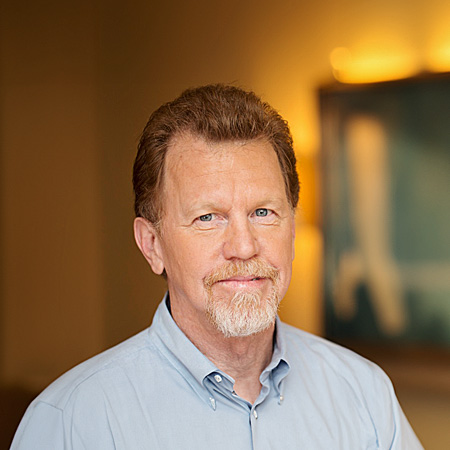
Host Academic Unit
Professor DeFond is the A. N. Mosich Chair of Accounting, Leventhal School, University of Southern California, in addition to being appointed as the Associate Dean of Faculty Affairs. His research investigates issues in auditing, international accounting, and earnings management. He is one of the most celebrated researchers in the field of Accounting, with more than 35,000 Google Scholar citations to his name, and is ranked at No. 5 on the all-time list of most cited authors worldwide in the BYU Accounting Rankings. He is the recipient of many academic awards, including the Notable Contribution to Auditing Literature Award bestowed by the American Accounting Association. He has served as Senior Editor of The Accounting Review and on the editorial boards of several leading academic journals. He was also appointed the vice president of Research & Publications by the American Accounting Association. Professor DeFond's expertise and reputation extend beyond the borders of the United States. He is highly regarded nationally and internationally as a leading scholar in accounting. His research has had a global impact, influencing the practices and policies of accounting professionals worldwide. Professor DeFond is also a four-time MBA Golden Apple teaching award winner. He received his PhD at the University of Washington and prior to that worked as an auditor with Deloitte (formerly Touche Ross).
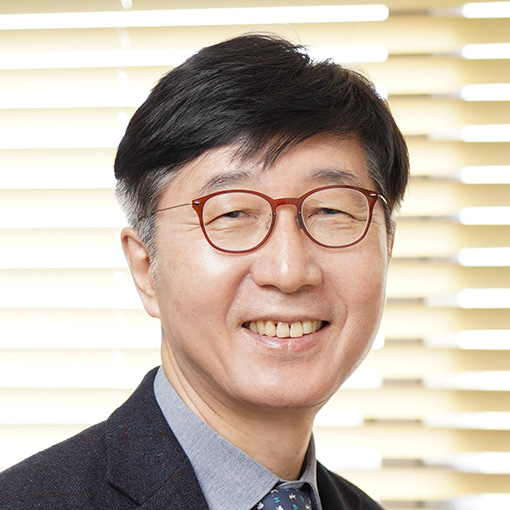
Host Academic Unit
Professor Nam-Gyu Park is a Lifetime Distinguished SKKU Professor at the School of Chemical Engineering and Director of the SKKU Institute of Energy Science and Technology (SIEST), Sungkyunkwan University (SKKU). He earned his B.S. degree in chemical education in 1988, followed by M.S. and Ph.D. degrees in chemistry from Seoul National University in 1992, and 1995, respectively. Prof. Park has served as a postdoctoral researcher at ICMCB-CNRS, France, from 1996 to 1997 and at the National Renewable Energy Laboratory (NREL), USA, from 1997 to 1999. Prior to his current role, Prof. Park held key positions, including director of the solar cell research center at the Korea Institute of Science and Technology (KIST) from 2005 to 2009 and senior researcher at the Electronics and Telecommunications Research Institute (ETRI) from 2000 to 2005. He joined SKKU as a full professor in 2009. Prof. Park is recognized as an elected fellow of the Korean Academy of Science and Technology (KAST) since 2017. His expertise lies in the field of photovoltaics, with a career spanning back to 1997. Notably, he made groundbreaking contributions by being the first to report a long-term stable perovskite solar cell in 2012, thereby initiating the research domain of perovskite photovoltaics. Acknowledging his significant impact in the scientific community, Prof. Park was honored as a Citation Laureate (top 0.01% scientist), a New Class of Nobel Prize-Worthy Scientist, on September 20, 2017, and consistently recognized in the highly cited researchers (HCR, top 1% scientists) list from 2017 to 2024 by Clarivate Analytics. Throughout his career, Prof. Park has received numerous awards, including the Scientist Award of the Month (2008), the KIST Award of the Year (2009), the Dupont Science and Technology Award (2010), the SKKU Fellowship (awarded three times in 2013, 2018, and 2021), the PVSEC Hamakawa Award (2015), the Dukmyung KAST Engineering Award (2016), the Samsung Ho-Am Prize (2018), the Rank Prize (UK, 2022), the National Academy of Engineering of Kore (NAEK) Main Award (2024), the Top Scientist and Technologist Award of Korea (2024), and Eni Prize of Energy Frontier (Italy, 2024). Beyond his research contributions, Prof. Park actively contributes to the scientific community as the Senior Editor of ACS Energy Letters and serves on the Editorial Advisory Board for Chem. Rev., ChemSusChem, and Solar RRL.
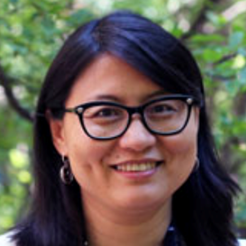
Host Academic Unit
Professor Ning Yan holds a Tier 1 Canada Research Chair in Sustainable Bioproducts at the University of Toronto. She has also held the University of Toronto Distinguished Professorship in Forest Biomaterials Engineering and an Endowed Chair in Value Added Wood and Composites previously. Professor Yan’s expertise is in bio-based material science, green chemistry, and biopolymer science with 240 peer-reviewed publications in leading scientific journals. She is currently serving as an associate editor of the ACS Sustainable Chemistry and Engineering journal. Professor Yan obtained her PhD degree in Chemical Engineering from the University of Toronto in 1997 and joined the University of Toronto as a faculty member in 2001 after working for various companies in Canada and United States. She is an elected Fellow of the Engineering Institute of Canada (EIC), International Academy of Wood Science (IAWS), and the Canadian Academy of Engineering (CAE).

Host Academic Unit
Professor Omar Matar is currently the Vice-Dean (Education) for the Faculty of Engineering, Head of the Department of Chemical Engineering, and Professor of Fluid Mechanics at Imperial College London. He is a Fellow of the Royal Academy of Engineering (2020), Fellow of the Institution of Chemical Engineers (2019), and Fellow of the American Physical Society (2015). His proven leadership abilities and track record of success in academic administration make him an invaluable asset. Professor Matar's extensive research background in fluid mechanics, multiphase flows, and computational fluid dynamics are highly regarded in the academic community. His contributions in these areas have significantly advanced our understanding of complex fluid systems. By sharing his expertise, Professor Matar would elevate the capabilities of our department, enabling our collaborators to undertake more ambitious and cutting-edge research projects.
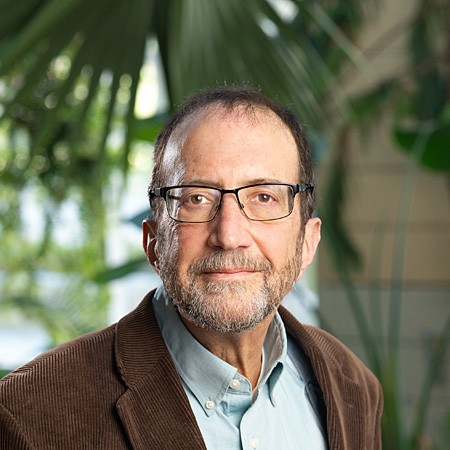
Host Academic Unit
Professor Richard Chappell, a distinguished scholar in the field of statistics and medical informatics, has been faculty at the University of Wisconsin for 34 years. As a Full Professor in the Department of Statistics and the Department of Biostatistics and Medical Informatics, as well as a member of the University of Wisconsin Comprehensive Cancer Center, his research focuses on analysis and design of clinical trials, modelling long term effects of caner radio- and chemotherapy, models in radiation physics, bivariate and nonparametric survival analysis. Professor Chappell is particularly interested in statistical methods in radiobiological modeling and cancer clinical trials, as reflected in his continued collaboration with an international array of radiation biologistics and oncologists on appropriate dose, time, and fractionation schedules in cancers of the head & neck, prostate, lung, and cervix. In many cases, these collaborations have progressed from theory to clinical trials. His work in cancer clinical trials has been recognized by Fellowship in the Society for Clinical Trials, a decade of teaching in the American Society of Clinical Oncology (ASCO)/ American Association for Cancer Research (AACR) Vail workshop on cancer clinical trials, and service on many DSMBs and FDA advisory boards. Professor Chappell collaborates extensively with investigators with specializations in mental health, aging, radiation biology in cancer, and randomized clinical trials. In addition to these collaborations and work with the Food and Drug Administration (FDA) and Society for Clinical Trials, he is the Fellow of the American Statistical Association (ASA), and he has been a member of approximately 25 Data Safety Monitoring Boards (DSMBs) for the National Institutes of Health, Veterans Affairs, and industry.
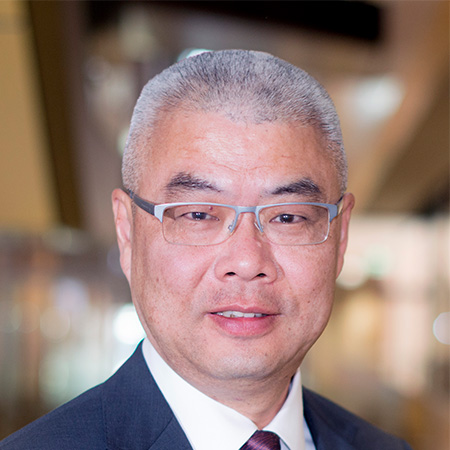
Host Academic Unit
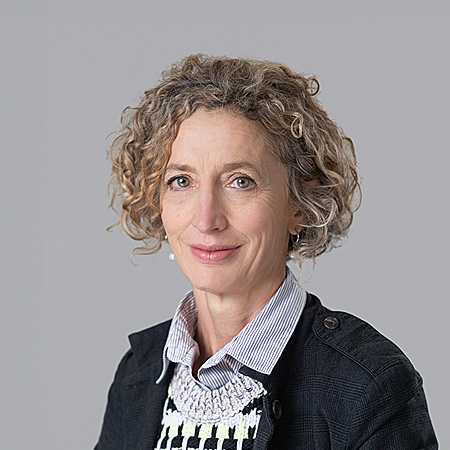
Host Academic Unit
Professor Stella Bruzzi FBA has been Executive Dean of the Faculty of Arts and Humanities and Professor of Film at University College London (UCL) since 2017 where she is also Professor of Film. She has held positions at the University of Manchester, Royal Holloway, University of London and the University of Warwick, where she also served Chair of the Faculty of Arts from 2008 to 2011. She has published widely in the areas of costume and cinema (including Undressing Cinema: Clothing and Identity in the Movies, the first book in the field), documentary (including the influential New Documentary in 2006), gender and masculinity in Hollywood and representations of history, and has, to date, published eight monographs, the last of which was Approximation: Documentary, History and the Staging of Reality (Routledge, 2020). In 2013 she was elected Fellow of the British Academy.

Host Academic Unit
Professor Tuomas Knowles is the 1920 Professor of Physical Chemistry at the University of Cambridge, and is co-director of the Cambridge Centre for Protein Misfolding Diseases. He is also a Fellow of St John’s College, Cambridge. He is the recipient of a number of international prizes, including the Sackler Prize in Biophysics and the Corday-Morgan Prize from the Royal Society of Chemistry. Knowles’ research focuses on understanding, controlling and designing protein systems. His research brings together physical sciences and life sciences to address key problems in human and planetary health. He has a track record of developing new technologies for healthcare applications, and was the Cambridge Enterprise Academic Entrepreneur of the year in 2019 and has founded several biotech companies.
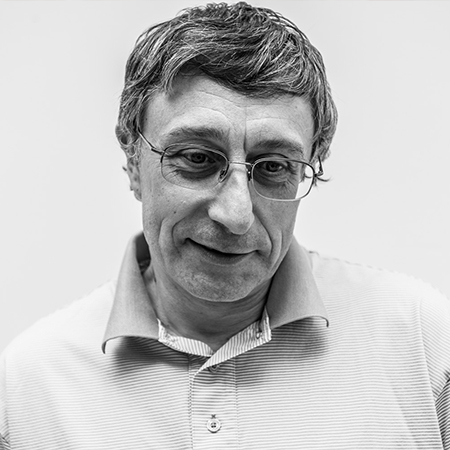
Host Academic Unit
Professor Vladimir Fal’ko MAE is condensed matter theorist who made fundamental contributions towards understanding physical properties of two-dimensional (2D) materials, including graphene, 2D transition metals dichalcogenides, simple-metal chalcogenides, moiré superlattice effects in 2D materials and twistronic structures (h-index 66, Clarivate Highly Cited Researcher in 2016, 2017, 2018, 2021, 2022). Fal’ko initiated the Graphene Week Conference series (which runs annually since 2006), during 2014-2021 he was the founding Editor-in-Chief of the IoP 2D Materials Journal, and he is among the leaders of the EU Graphene Flagship Project. Since 2015, Fal’ko is Director of National Graphene Institute at Manchester and the Champion of 2D Materials Theme in the UK’s Henry Royce Institute for Advanced Materials.
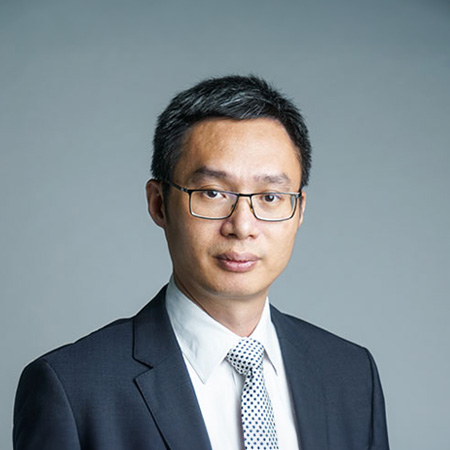
Host Academic Unit
Professor Chen Xiaodong is a Full Professor at the School of Materials Science and Engineering (MSE), Nanyang Technological University (NTU). He received his PhD degree (Summa Cum Laude) in biochemistry from the University of Münster, Germany, in 2006. Professor Chen has published over 180 high profiled articles, including in Nature Communications, Angewandte Chemie, and Advanced Materials. His papers have been cited more than 6,500 times with an Hirsch-index of 42. His research work was highlighted by more than 100 local and overseas’ media. Professor Chen’s research work on generating industrial impact is evident from his 22 patents, four of which had been licensed for commercial development. He is also the co-founder of a spin-off company, Quickcharge Pte Ltd, commercializing cutting-edge energy storage technology. Currently, Professor Chen’s research focuses on three directions: (1) Nanobioelectronics: to develop integrated nanostructure-biomaterial hybrid systems for bioelectronics and probe biological processes at the nanoscale; (2) Bioinspired assembly: to mimic methods used by nature for interfacing organic and non-organic material and building hierarchical structures with advanced functions, and (3) Nanomaterials for energy conversion and storage: to explore nanoscale modules for light harvesting, charge separation, solar energy conversion, and storage.
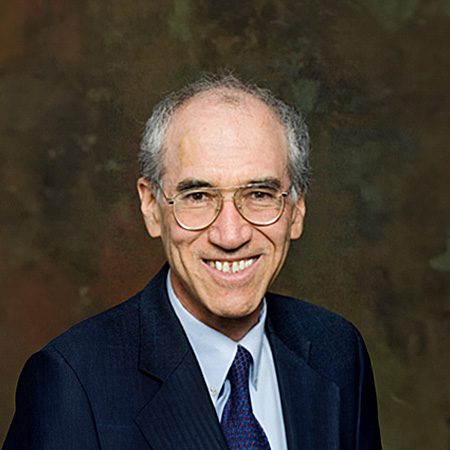
Host Academic Unit
Professor Yakov Amihud is Ira Rennert Professor of Entrepreneurial Finance at the Stern School of Business, New York University. His research includes the evaluation of corporate financial policies, mergers and acquisitions, initial public offerings, objectives of corporate managers, dividend policy, and law and finance.
The focus of his research is the effects of liquidity of assets on their returns and values, and the design and evaluation of securities markets' trading methods. On these topics, Amihud has done consulting work for the NYSE, AMEX, CBOE, CBOT, and other securities markets. He has published more than seventy research articles in professional journals and in books, and edited and co-edited five books on topics such as LBOs, bank M&As, international finance, and securities market design.
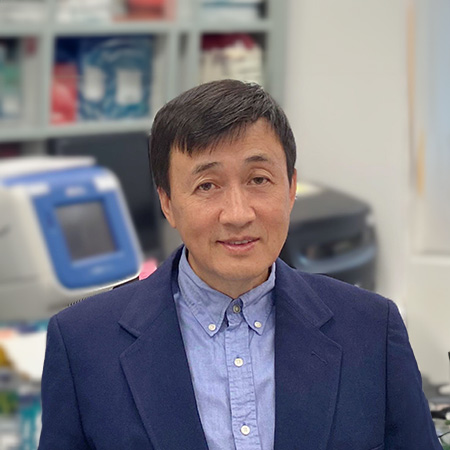
Host Academic Unit
Professor Yihai Cao, a medicine professor at the Karolinska Institute, Sweden, is a member of several prestigious academies, including the Chinese Academy of Engineering, Chinese Academy of Medical Sciences, Academia Europaea, European Academy of Sciences and Arts, National Academy of Inventors, and American Institute of Medicine and Biological Engineering. Professor Cao completed his medical training at Shandong Medical School and earned his Ph.D. from Karolinska Institute, with postdoctoral training in Dr. Judah Folkman’s laboratory at the Harvard Medical School. His laboratory's research is centered on angiogenesis in tumor growth, metastasis, and non-malignant diseases. In 2006, Professor Cao received an honorary medical doctor degree from the Copenhagen University, Denmark. He is also a guest professor at the Linköping University, Sweden; Leicester University, UK; an honorary professor at the Copenhagen University, Denmark and the Shinshu University Japan. With over 302 research articles published, Professor Cao’s work has an average impact factor greater than 14.49 per article, and his scientific articles have been cited over 49,541 times, achieving an H-index of 110.
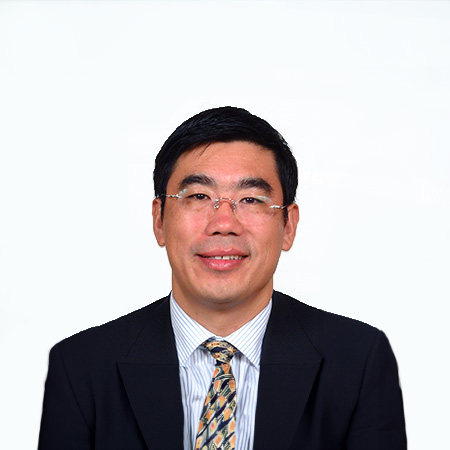
Host Academic Unit
Professor Zhanfeng Cui is the Donald Pollock Professor of Chemical Engineering, University of Oxford since the Chair was established in 2000. He is the Founding Director of the Oxford Suzhou Centre for Advanced Research (OSCAR), the only Oxford University Centre outside the UK in Physical Sciences and Engineering. He was awarded BSc (1982) from Inner Mongolia Polytechnic University, MSc (1984) and PhD (1987) from Dalian University of Technology. Professor Cui was elected to the first Chemical Engineering Chair at the University of Oxford in 2000 and a Professorial Fellow of Hertford College. In 2009, he was awarded a Higher Doctorate, Doctor of Science (DSc), by the University of Oxford, to recognize his excellence in academic scholarship. He is also a Fellow of several prestigious institutions, including Institution of Chemical Engineers (FIChemE, 2003), American Institute of Medical and Biological Engineering (FAIMBE, 2014), Royal Academy of Engineering (FREng, 2013), UK Academy of Medical Sciences (FMedSci, 2023), and a Foreign Member of the Chinese Academy of Engineering (2021). Professor Cui is known for his work on membrane technology and bioprocessing. He has focused on the interface between Chemical Engineering and Life Sciences and Medicine. His current research interests focus on the development of enabling technologies for regenerative medicine (bioreactors, three dimensional culture, cryopreservation and scale-up), and applications to treat cancers, diabetes, neural degeneration and musculoskeletal conditions. He is also active in developing in vitro diagnostic technologies for point of care testing, in particular, of cancers and infectious diseases.
CityUHK comprises of ten academic Colleges/Schools, including Biomedicine, Business, Creative Media, Computing, Energy and Environment, Engineering, Science, Law, Liberal Arts and Social Sciences, and Veterinary Medicine and Life Sciences. Our curricula are designed to promote knowledge creation, original discoveries and innovative thinking by integrating teaching and research at all levels.
CityUHK established 23 Research Institutes/Centres and 10 Applied Strategic Development Centres covering different areas of strategic importance.
With the approval from the Ministry of Science and Technology of China, CityUHK established 2 State Key Laboratories and 1 Chinese National Engineering Research Center.
The Distinguished Visiting Professors Scheme is managed by the Office of the Vice-President (Talent and International Strategy).
Enquiries: vpti@cityu.edu.hk